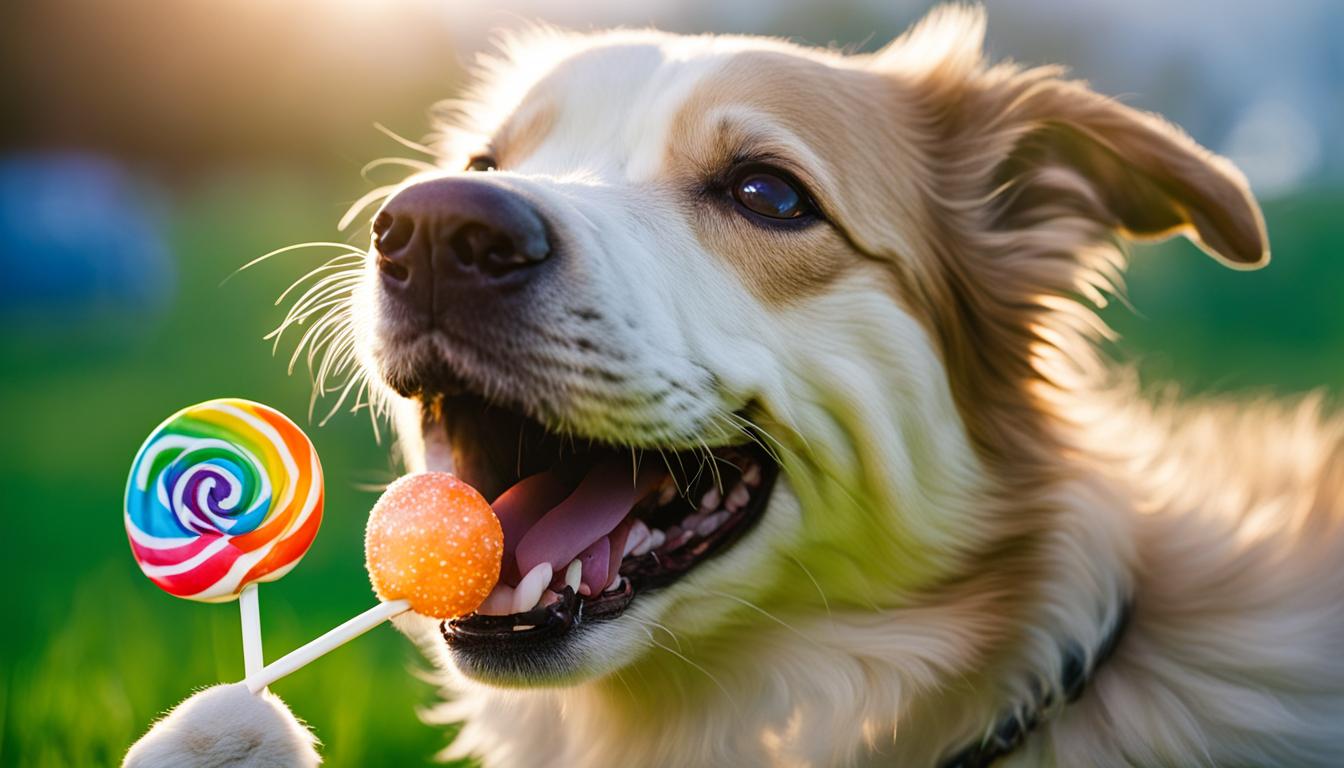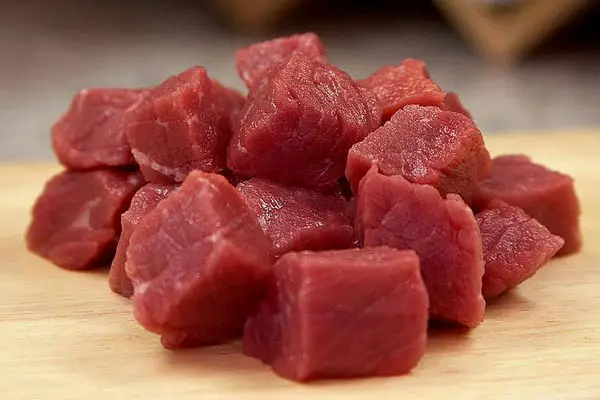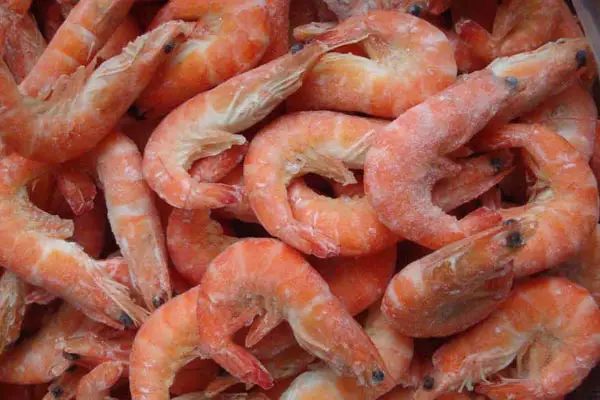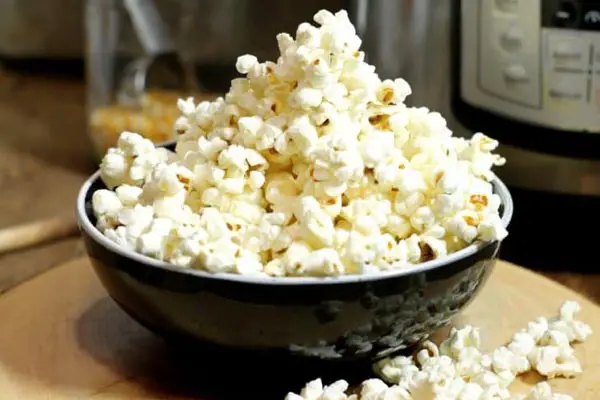Can Dogs Eat Lollipop? Your Comprehensive Guide
Regarding dogs and lollipops, it’s important to understand the potential health risks and safe alternatives. While lollipops may not be toxic to dogs in small quantities, several factors should be considered.
Let’s explore the dangers of dogs eating lollipops and discover alternative treats more suited for our furry friends.
Can dogs eat lollipop? This question often arises among pet owners. While lollipops may seem harmless, they pose significant risks to canine health. The dangers are real, from the consumption of harmful ingredients to potential choking hazards.
The Dangers of Dogs Eating Lollipops
Lollipops can pose several risks to dogs, making them unsuitable treat options for our furry friends. One of the main concerns is the presence of xylitol, an artificial sweetener commonly found in lollipops.
Xylitol is highly toxic to dogs and can cause a rapid release of insulin, leading to a dangerous drop in blood sugar levels. This can result in symptoms such as weakness, vomiting, seizures, and even liver failure if left untreated.
In addition to xylitol, the paper or plastic sticks in lollipops can also present choking hazards for dogs. These sticks can easily get lodged in the throat, causing breathing difficulties or blockages.
Furthermore, if the stick is swallowed, it may cause obstructions in the gut or bowels, requiring immediate medical attention.
Another risk associated with dogs consuming lollipops is the excessive intake of sugar. Lollipops are typically high in sugar content, and frequent consumption can contribute to obesity, diabetes, dental problems, and other health issues in dogs.
Table: Common Dangers of Lollipop Consumption in Dogs
| Danger | Explanation |
|---|---|
| Xylitol Toxicity | The presence of xylitol in lollipops can lead to rapid insulin release, causing low blood sugar levels and potentially fatal consequences. |
| Choking Hazards | The paper or plastic sticks in lollipops can present choking hazards, obstructing the airways or causing bowel obstructions if swallowed. |
| Excessive Sugar Intake | The high sugar content of lollipops can contribute to obesity, diabetes, dental problems, and other health issues in dogs. |
Alternatives to Lollipops for Dogs
These alternatives ensure that our canine companions enjoy a tasty snack while minimizing the potential risks of lollipop consumption.
Pup-Friendly Ingredients
One popular alternative to lollipops for dogs is homemade pup pops. These frozen treats are easy to make and can be customized with pup-friendly ingredients.
A simple recipe combines bananas, plain Greek yogurt, and unsweetened peanut butter. Combining these ingredients provides dogs a refreshing and healthy treat, especially during the hot summer.
Frozen Pup Pops
Frozen pup pops not only offer a delicious cooling sensation for dogs, but they also provide mental stimulation and help satisfy their natural urge to chew. Frozen treats’ texture and temperature can relieve teething puppies or soothe older dogs with dental discomfort.
Risks of Lollipop Consumption in Dogs
One notable hazard involves the risk of xylitol toxicity in dogs stemming from the ingestion of lollipops containing this artificial sweetener.
When consumed, xylitol prompts a swift insulin release, culminating in a perilous decline in blood sugar levels. This adverse reaction may escalate to liver damage or, in severe cases, result in fatality.
Additionally, including paper or plastic sticks in lollipops poses a significant threat of causing bowel obstructions in dogs. Swallowing such sticks can lead to blockages in the throat, gut, or bowels, necessitating immediate medical intervention.
Observable symptoms may manifest as vomiting, diarrhea, abdominal discomfort, or, in more extreme instances, a complete digestive system blockage.
Moreover, the excessive sugar content in lollipops can engender diverse health issues in dogs. Analogous to the impact on humans, a diet high in sugar can contribute to obesity, diabetes, and dental complications.
Given that dogs lack the physiological capacity to handle substantial sugar intake, consistent consumption of lollipops can compromise their overall health and well-being.
Table: Risks of Lollipop Consumption in Dogs
| Risk | Explanation |
|---|---|
| Xylitol Toxicity | Xylitol, an artificial sweetener found in lollipops, can cause a dangerous drop in blood sugar levels and liver damage in dogs. |
| Bowel Obstructions | The paper or plastic sticks in lollipops can lead to digestive system blockages, causing vomiting, diarrhea, and abdominal discomfort. |
| Health Issues from Excessive Sugar Intake | Excessive sugar consumption from lollipops can contribute to obesity, diabetes, and dental problems in dogs. |
Tips for Keeping Dogs Safe During Halloween
Halloween can be a fun and exciting time, but it’s essential to take precautions to ensure the safety of our four-legged friends. Here are some tips to keep your dogs safe during this festive holiday:
1. Keep candy out of reach
Many Halloween candies, such as chocolate and those containing xylitol, can be toxic to dogs. Keep all candy securely stored and out of your dog’s reach.
This includes not leaving candy bowls on low tables or countertops where your curious canine can easily access them. It’s best to store candy in a closed cabinet or pantry to prevent any accidental ingestion.
2. Avoid costumes that restrict movement or vision
If you plan on dressing up your dog for Halloween, ensure the costume allows unrestricted movement and doesn’t obstruct their vision.
Avoid costumes with small parts that can be chewed off and swallowed. It’s also essential to monitor your dog wearing a costume to ensure they’re comfortable and not exhibiting signs of distress.
3. Create a safe and quiet space
Halloween can be noisy and chaotic, with doorbells constantly ringing and children trick-or-treating. This can cause stress and anxiety for some dogs.
Create a safe and quiet space for your dog to retreat if they feel overwhelmed. This could be a room with their bed, favorite toys, and some soothing music or white noise to help drown out the noise outside.
4. Have emergency contact information readily available
In emergencies, it’s essential to have your veterinarian’s contact information readily available. Keep their phone number and address easily accessible, along with any important details about your dog’s medical history.
It’s also a good idea to have the number for a local emergency veterinary clinic on hand in case your regular veterinarian is closed.
| Halloween Safety Tips for Dogs | Summary |
|---|---|
| Keep candy out of reach | Ensure all Halloween candy is stored securely and out of your dog’s reach to prevent accidental ingestion of toxic substances. |
| Avoid costumes that restrict movement or vision | Choose comfortable costumes for your dog that allow unrestricted movement and don’t obstruct their vision. |
| Create a safe and quiet space | Provide a designated space for your dog where they can retreat if they feel overwhelmed by the noise and activity of Halloween. |
| Have emergency contact information readily available | Keep your veterinarian’s contact information and details about your dog’s medical history easily accessible in emergencies. |
Final Thoughts
In conclusion, weighing the last considerations when treating dogs with lollipops is imperative. While the allure of these treats is evident, maintaining moderation is crucial for safeguarding the health and well-being of our canine friends.
Opting for pet-safe food options is essential to prioritize their overall health. Treat dogs with moderation, factoring in size, weight, and individual dietary requirements. Seeking input from a veterinarian is invaluable for guidance, ensuring dogs get suitable treats and portion sizes.
FAQ
Can dogs eat lollipops?
Dogs should not consume lollipops due to their potential health risks, including the presence of xylitol, choking hazards, and high sugar content. It’s best to opt for dog-friendly treats instead.
What are the dangers of dogs eating lollipops?
The dangers of dogs eating lollipops include xylitol toxicity, choking hazards from the sticks, and potential health issues from excessive sugar intake.
What are some alternatives to lollipops for dogs?
Dog-friendly alternatives to lollipops include homemade pup pops made with ingredients like bananas, plain Greek yogurt, and unsweetened peanut butter. These frozen treats provide a safe and enjoyable alternative for dogs.
What are the risks of lollipop consumption in dogs?
Lollipop consumption can result in xylitol toxicity, which is considered an emergency. Additionally, ingestion of lollipop sticks can cause bowel obstructions, potentially requiring surgery. Excessive sugar intake can contribute to obesity, diabetes, and dental problems in dogs.
How can I keep my dog safe during Halloween?
To ensure your dog’s safety on Halloween, take precautions such as keeping all candies out of their reach, refraining from purchasing candies containing dark chocolate or xylitol, and having your veterinarian’s emergency contact information easily accessible.
What are some final thoughts on dogs and lollipops?
It’s essential to prioritize the well-being of our furry friends by avoiding lollipops and providing them with pet-safe treats. Remember to exercise moderation when treating dogs and explore alternative food options specifically formulated for their needs.






